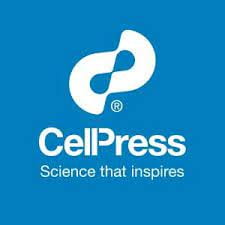February 26-27, 2024
Schedule varies
University of California Santa Cruz, Silicon Valley Campus
The UC Santa Cruz Science & Justice Research Center (SJRC), in collaboration with the LEED Team, is hosting a Kick-Off meeting and public dialogue which will take place at the UCSC Silicon Valley Campus in Santa Clara from February 26th to 27th 2024. The second day will feature two public facing sessions to gather thought leaders in the domain of science and society from the UCs, Stanford, Cal State and Silicon Valley to envision how to build more equitable research practices and communities. The day will end with a public reception at 5PM, followed by a panel discussion, Centering Equity and Justice in Research: What Will It Take? The panel will bring to our campus prime movers in efforts to create just and equitable research systems. Registration.
February 27th 2024 at 5:00pm – 7:00pm PST
In 1978, the Belmont Report issued by the U.S. National Commission for the Protection of Human Subjects named justice as one of three core ethical principles that should guide research. Yet in the years that followed, researchers, policy makers, and ethicists paid much more attention to the other two principles–autonomy and beneficence–than to concerns about justice. This began to change a decade ago when social justice movements created new pressures on policy makers and scientists to attend to equity and justice. In 2013, the American Civil Liberties Union (ACLU) led the charge to overthrow gene patents, resulting in the landmark Supreme Court ruling against Myriad, a major step towards health equity. Efforts to attend to issues of equality and justice accelerated further in the wake of the Black Lives Matter protests after the murder of George Floyd in the summer of 2020. In January of 2021, the Biden-Harris Administration appointed the first Deputy Director of Science and Society in its Office of Science, Technology and Policy (OSTP) and a year later released a bold vision to achieve equity in STEMM, followed by the Blueprint for an AI Bill of Rights in October 2022. Most recently, in August of 2023 the National Academies of Sciences, Engineering, and Medicine (NASEM) issued a report calling for the U.S. to center equity in health care innovation.
This panel brings together central architects and prime movers of these efforts to reflect on the progress that has been made and the work that lies ahead. Join us as we imagine this next chapter of the critical revolution to create just and equitable research systems that not only foster innovation, but create trustworthy sciences, technologies and societies.
Panelists
Ray Fouché, Professor of Communication Studies at Northwestern University, immediate past Division Director of Social and Economic Sciences within the Directorate of Social and Behavioral Sciences at the National Science Foundation.
Evelynn Hammonds, Barbara Gutmann Rosenkrantz Professor of the History of Science and Professor of African and African American Studies at Harvard University, co-author of the National Academy of Sciences (NAS) report, Transforming Trajectories for Women of Color in Tech (2022).
Karen Miga, Assistant Professor of Biomolecular Engineering and Associate Director of the UCSC Genomics Institute, co-lead of the telomere-to-telomere (T2T) consortium and project director of the human pangenome reference consortium (HPRC) production center at UC Santa Cruz.
Kim TallBear, (Sisseton-Wahpeton Oyate) is Professor and Canada Research Chair in Indigenous Peoples, Technoscience, and Society in the Faculty of Native Studies, University of Alberta, Canada.
Moderated by Jenny Reardon, Founding Director of the Science & Justice Research Center, UC Santa Cruz.
Refer to the LEED Project website for more information.



